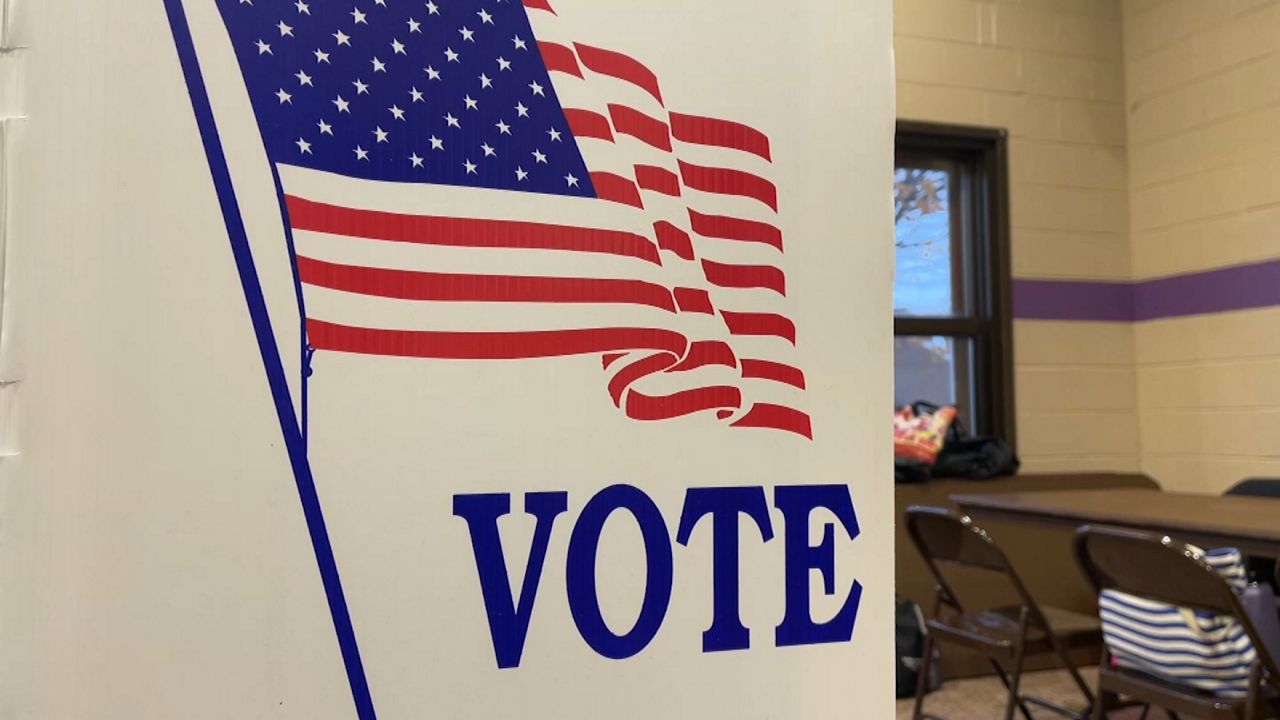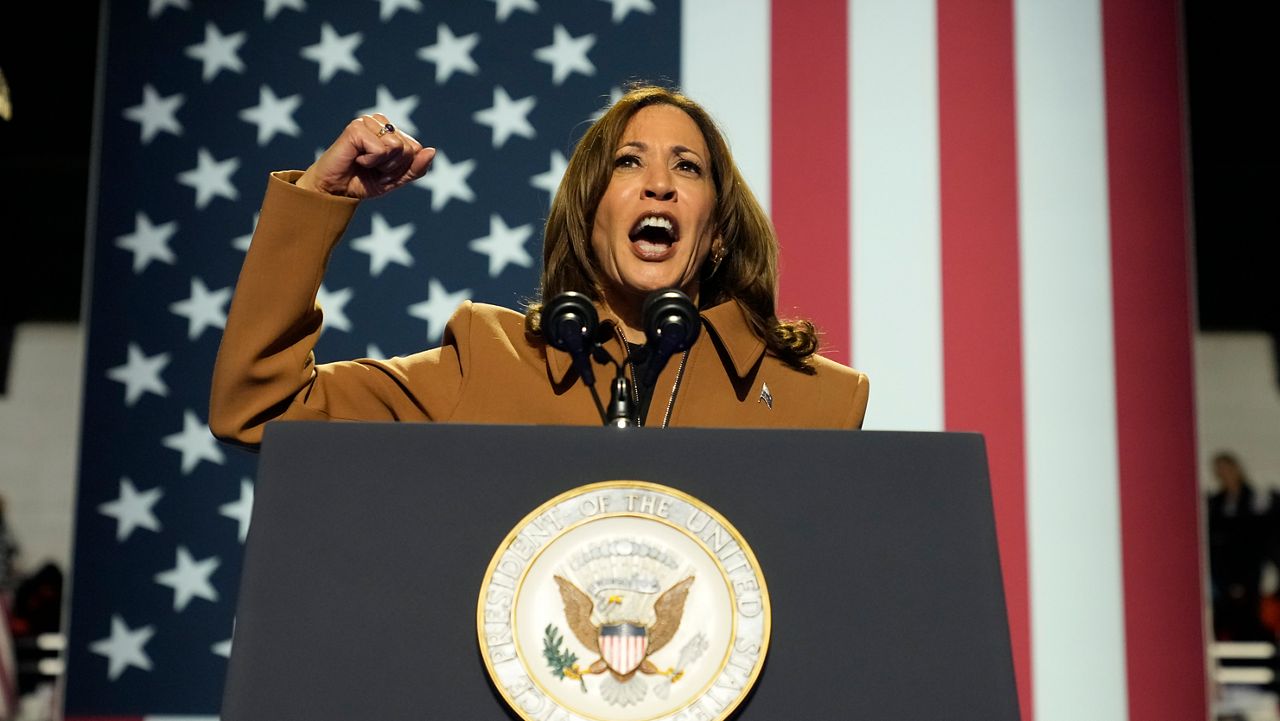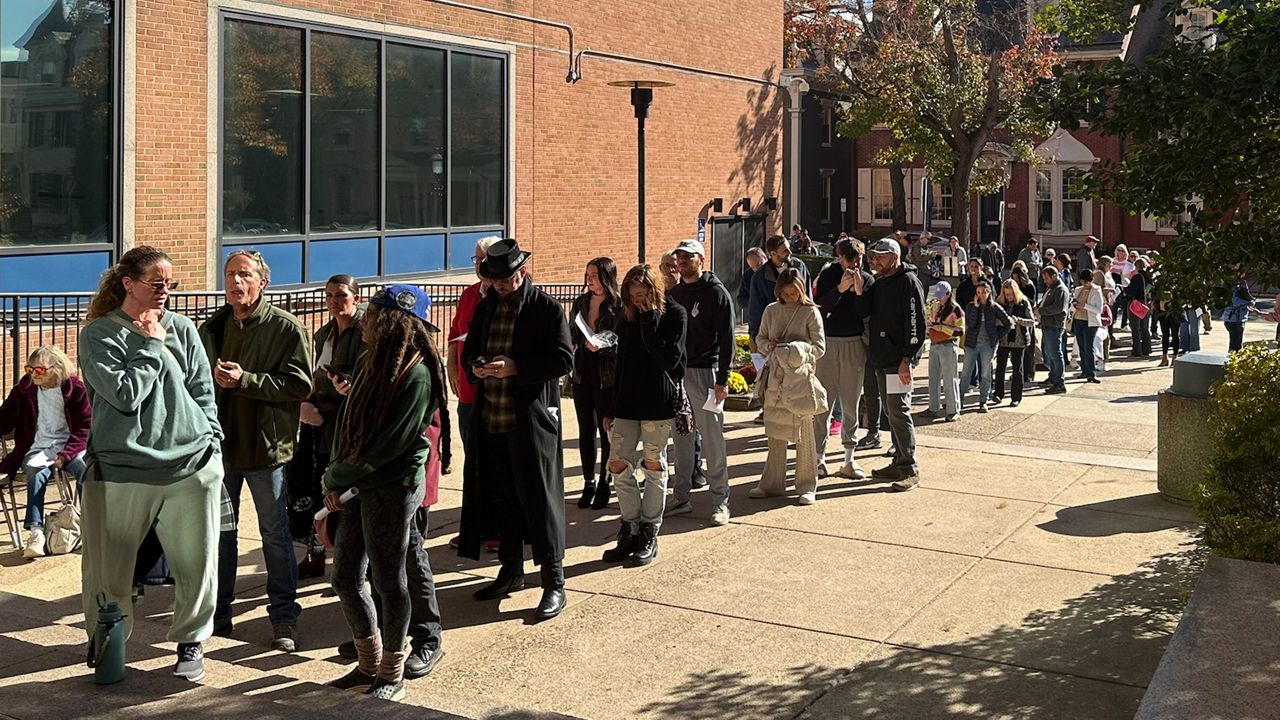From indictments and impeachment inquiries to ousters and expulsions in the House of Representatives, it's been a busy year in politics.
Here’s a look back at some of the biggest political stories of 2023:
The year started off with Republicans reclaiming the House of Representatives, but their tenure in Congress' lower chamber got off to a rocky start.
Members of the far right were opposed to the selection of Kevin McCarthy to lead the House, and in the end, it took 15 rounds to select the California Republican as speaker of the House.
McCarthy was all smiles as he reached this pinnacle of political success, but in order to get the speaker's gavel, he had to make several concessions to his far-right flank, notably allowing any single member to present a "motion to vacate" the position -- which ultimately led to his undoing.
The embattled McCarthy lost the support of his hard-right flank by working with Democrats in May to raise the debt ceiling, and then again in October to avert a government shutdown. These decisions outraged conservatives such as Florida Rep. Matt Gaetz, who led the charge to oust McCarthy.
"Chaos is Speaker McCarthy," Gaetz said at the time. "Chaos is somebody who we cannot trust with their word."
Eight Republicans broke ranks with their colleagues to force McCarthy's ouster, the first time a speaker has been removed via the motion to vacate.
For three long weeks, lawmakers came and went as possible replacements: first Louisiana Rep. Steve Scalise, the House's majority leader; then Ohio Rep. Jim Jordan, chairman of the Judiciary Committee; followed by Minnesota Rep. Tom Emmer, the chamber's majority whip. The House was unable to conduct any business while Republicans considered a speaker, bringing the country once again to the brink of a shutdown.
Ultimately, House Republicans were able to settle on Louisiana Rep. Mike Johnson to take over as speaker. Earlier this month, McCarthy announced he would be resigning from Congress at the end of the year, shrinking the already narrow House GOP majority.
Shortly after he was elected in November of last year, reports emerged that showed George Santos, a Republican who had flipped a New York district won by President Joe Biden in 2020, fabricated a number of portions of his background, including his career on Wall Street, academic credentials, athletic achievements, Hollywood roles, racial heritage, being the descendant of Holocaust survivors, losing his mother to the 9/11 terrorist attack and losing employees in the 2016 Orlando mass shooting at a gay nightclub that left 49 people dead.
Santos’ Republican colleagues quickly turned on him, particularly fellow New York congressmen who repeatedly called for his resignation and, at one point, mounted an unsuccessful effort to remove him from Congress.
Despite calls for his resignation, Santos remained defiant, promising to stay in Congress through the end of his term.
But the situation escalated quickly for Santos after federal prosecutors charged the New York Republican in May, accusing him of wire fraud, money laundering and false statements to Congress. He pleaded not guilty. Democrats attempted to force Santos out at the time, but House Republicans voted to refer the matter to the House Ethics Committee, which had already begun investigating the New York congressman.
In October, federal prosecutors unveiled a slew of new charges against Santos, including credit card fraud and identity theft, bringing the total number of felonies he faced to 23. (He pleaded not guilty to all charges.)
About a month later, the House Ethics panel released a report which it said found "substantial wrongdoing" by Santos, charging that he "blatantly stole from his campaign," "sought to fraudulently exploit every aspect of his House candidacy for his own personal financial profit" and "reported fictitious loans to his political committees to induce donors and party committees to make further contributions to his campaign – and then diverted campaign money to himself as purported ‘repayments’ of those fictitious loans."
Among the panel's findings were expenditures from Santos' campaign on lavish trips to Atlantic City, New Jersey, Botox and spa treatments, goods from Hermes and Sephora and payments to OnlyFans.
The Ethics report ultimately motivated enough Republicans to change their minds and, after two unsuccessful efforts earlier in the year, Santos was expelled from the House on Dec. 1, bringing his tumultuous, scandal-plagued term in Congress to an end.
The vote was 311-114, with 105 Republicans turning against him. Santos is only the sixth House member to be removed in U.S. history.
Donald Trump's legal troubles expanded significantly in 2023. As Trump mounted his third White House bid, he was hit with four major criminal indictments, including two federal cases, making him the first former president to face charges.
The first indictment came in March, when a grand jury in New York indicted Trump on charges relating to alleged hush-money payments made to an adult film star during the 2016 presidential campaign.
Trump, defiant, denied any wrongdoing and attempted to put the blame on President Joe Biden -- despite the New York case not having anything to do with the federal government.
“I believe this Witch-Hunt will backfire massively on Joe Biden,” Trump said in a statement shortly after the indictment was unsealed. “The American people realize exactly what the Radical Left Democrats are doing here.”
That was a pattern Trump would repeat throughout the year. In June, Trump faced federal charges in Justice Department special counsel Jack Smith's probe into alleged mishandling of classified documents at his Mar-a-Lago estate in Florida. In August, Trump was indicted twice: once in federal court in Washington, D.C., the other in Fulton County, Georgia, but both cases were related to his alleged efforts to overturn the results of the 2020 election.
All told, Trump faces 91 felonies across the four cases. He has pleaded not guilty to all charges and baselessly accused Biden and Democrats of "election interference." The trials are set to begin in 2024.
The former president also is facing a civil defamation trial brought by writer E. Jean Carroll, who says Trump sexually abused her in the 1990s, and his business is facing a civil fraud case in New York connected to allegations of inflating his net worth.
As 2023 wraps up, President Joe Biden has found himself well underwater in approval polls and behind his potential 2024 GOP challengers more often than he is ahead, including in key states when pitted against that primary’s polling frontrunner: former President Donald Trump.
Biden has tried to assuage the public and his supporters that the polling rut is misleading, telling reporters outside his Delaware campaign headquarters recently that “you’re reading the wrong polls.”
But poll after poll released by well-respected pollsters in recent weeks have presented a different picture than Biden likes to project as he balances reelection efforts with wars in the Middle East and Europe, widespread economic dissatisfaction, the criminal prosecution of and Republican investigations into his son, and a dysfunctional, disagreeable Congress whose Republican majority wants to impeach him.
A recent New York Times/Siena College national poll found Biden had a 39% approval rating among likely voters, while 57% disapproved. Monmouth University and CNBC polls of American adults released this week clocked him with approval ratings in the mid-30s and disapproval in the low 60s — all-time low marks for Biden in those respective polls since becoming president. Fox News released a poll of registered voters on Sunday with a 43% approval rating and a 57% disapproval rating, up from Biden’s all-time lows in November of 40% and 59%, respectively. And a HarrisX/Harris Poll survey of registered voters commissioned by Harvard University last week reported 43% approve and 55% disapprove.
All told, polling aggregator FiveThirtyEight has Biden averaging around 39% approving of his job performance and 56% disapproving — near his worst marks as president.
Pollsters have sourced the bad grades for Biden to Americans' economic woes and the frustration of 18-29 year-olds — an age bracket that he won roughly two-thirds of in 2020 — with the administration’s record and its handling of the Israel-Hamas war. Biden and his allies have argued that the economic picture is better than people think and that they are working hard to limit civilian casualties in Gaza while supporting Israel’s war effort.
But the data also shows an American public deeply dissatisfied with the economy. Monmouth found majorities disapprove of Biden’s handling of infrastructure policy, job creation and inflation. Among those polled, 44% said they were struggling financially and only 12% said their situation was improving. In the CNBC poll, 66% of Americans had a negative view of the U.S. economy, a record in the 17 years the network has asked that question.
“The Biden administration keeps touting their infrastructure investments and a host of positive economic indicators,” said Patrick Murray, director of the Monmouth University Polling Institute, in a statement. “Those data points may be factual, but most Americans are still smarting from higher prices caused by post-pandemic inflation. This seems to be what’s driving public opinion. There is political danger in pushing a message that basically tells people their take on their own situation is wrong."
In an interview with Spectrum News, White House communications director Ben LaBolt said that the U.S. has ended the year on a "positive economic note," including a steep decline in inflation, and expressed optimism about a possible reversal in polling figures on the economy.
"It's certain that the feeling coming out of the pandemic ... was a difficult moment for people around the world, and there was a supply chain crisis that caused significant inflation globally," LaBolt said. "I think we're exiting this year at a different moment, you've seen coonsumer confidence, for example, a very important economic measure, surge over the past couple of months, inflation is coming down significantly."
"The economy is moving in the right direction, wages are up, they're outpacing inflation. It takes time for all of that to sink in. But we expect to see those numbers move in a positive direction next year."
Spectrum News' Ryan Chatelain, Joseph Konig and Justin Tasolides contributed to this report.









